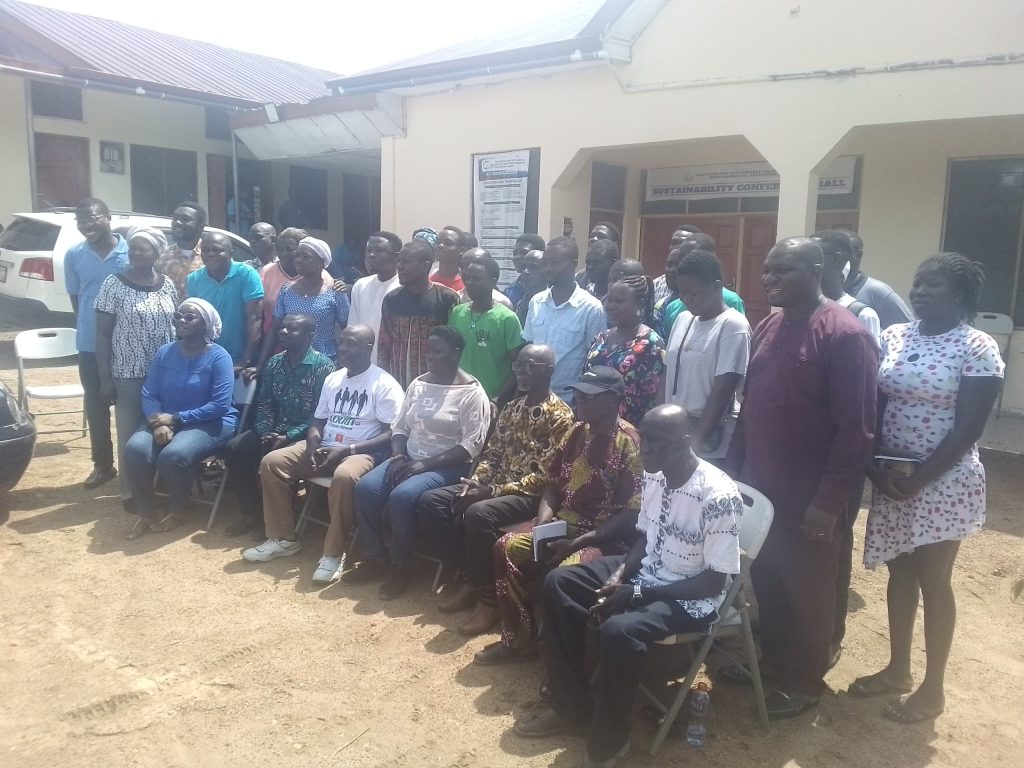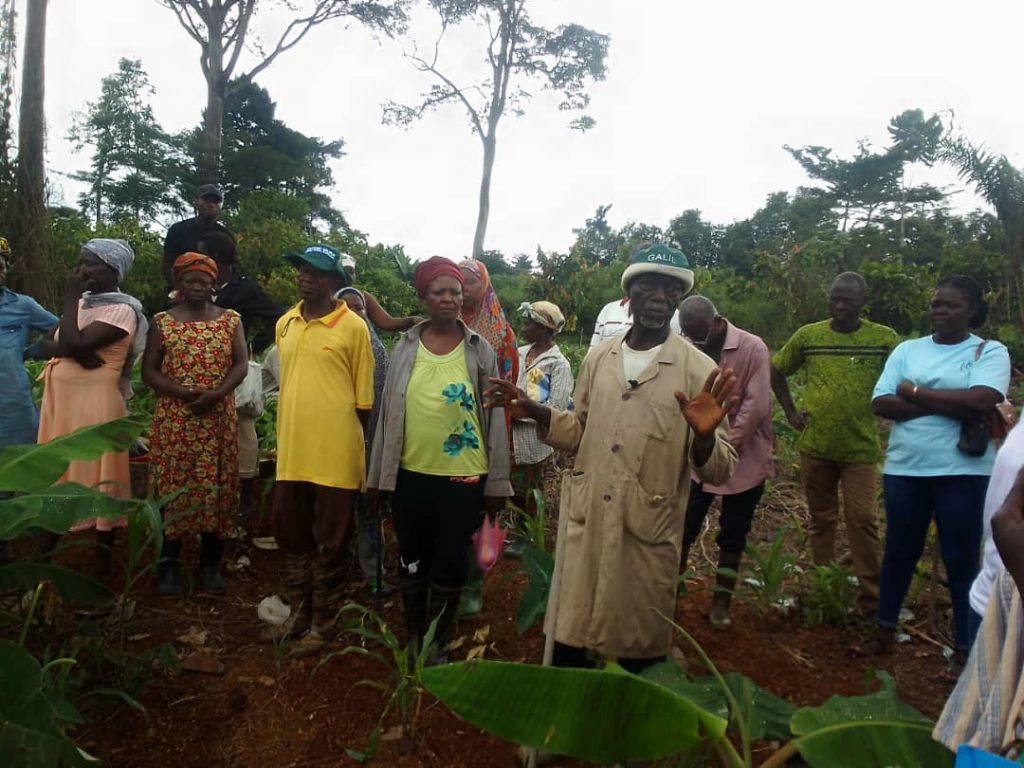By Samuel Yaokumah
Koforidua, Oct. 08, GNA – The Peasant Farmers Association of Ghana (PFAG) has organised a two-day workshop focused on capacity building and strategic partnerships, designed to empower farmer-based organizations in the Kwahu West Municipality and Ayensuano District.
Organised in collaboration with the 11th Hour Project, the training initiative aimed to enhance indigenous knowledge and practices while promoting agroecological methods among local farmers.
Additionally, it sought to strengthen the Ghana Agroecology Movement, fostering a sustainable approach to agriculture and guaranteeing food security.
Over 100 participants, mostly youth farmers, from the two eastern region districts, benefited from the workshop, gaining insights into sustainable farming techniques.
The farmers expressed satisfaction with the training as it not only improved their agricultural knowledge but also facilitated ways to strengthen community ties and encourage innovative practices.
Speaking during the session in Nkawkaw, the Kwahu West Chief Farmer, Mr Sampson Osei Appiah, advised farmers to abandon obsolete farming methods and adopt modern agricultural practices to boost food production for local consumption and export.

He said there was a need to support farmers with post-harvest facilities farming tools fertilizers and adequate funding to employ appropriate technology to bolster farm output.
Mr. Appiah also talked about the current situation whereby farmlands and water bodies have been destroyed by illegal mining and therefore urged the government to take immediate steps to address the menace.
The Kwahu West Municipality Agricultural Officer in charge of extension Mr. Prosper Mensah urged farmers to adopt agroecological concepts, taking participant farmers on how to prepare organic weedicides and fertilizer among others to supplement their efforts.
He also advised the farmers to form cooperatives to enable them to benefit more financial and agricultural extension service assistance to improve their farming projects and livelihoods.
At Teacher Mante in the Ayensuano District, Mr. George Atta Quaino, Assistant Director of the Institute of Sustainable Energy and Environmental Solutions, shared insights with the Ghana News Agency on the pressing challenges posed by climate change to local farmers.
During an interview, he emphasized that the effects of climate change variability are real and significantly hinder local farmers’ ability to accurately predict rainfall and planting seasons.
“Lately, rain does not fall when it’s expected, and conversely, it rains when we least expect it. This unpredictability is affecting farmers massively,” Mr Quaino stated.
He further noted that many farmers have abandoned traditional farming methods used by their ancestors in favour of newer technologies.
“While our forefathers utilized sustainable practices in farming, the current reliance on inorganic fertilizers and weed killers is negatively impacting our ecosystem,” he explained.

He pointed out that the unpredictable weather patterns have compelled local farmers to increase their use of chemical fertilizers and pesticides, which could pose serious health risks.
He advised farmers to revisit some traditional agricultural techniques, such as composting and soaking maize in nim leaf-infused water for a day or two prior to planting.
“This method helps ward off insects and pests because the solution is bitter, which deters them from consuming the seeds,” he advised.
He also recommended incorporating mixed cropping into their farming strategies.
Additionally, he expressed concern about the accessibility of food in local markets. Although food is available, it has become increasingly expensive, making it out of reach for a majority of the population.
Contributing during the session, Mr Gyampoh Ntiamoah Emmanuel, Supervisor in charge of the Aboabo Zone Extension Services in the Suhum Municipality, acknowledged some improvement in the availability of food supplies in local markets but highlighted that the prices remained disproportionately high.
“The high food prices are attributed to increased transportation costs, fuel prices, and the costs of seeds, chemicals, and fertilizers among other inputs,” he noted.
Ms. Ramla Keelson, Programme Officer of PFAG, urged farmers at the training to share the knowledge they gained on agroecological practices and sustainable farming methods with their peers to enhance crop yields.
“Promoting opportunities and technology for farmers is essential, especially given the acute shortage of extension officers available to assist them,” Ms. Keelson said.
She also emphasized the importance of establishing strong relationships between farmers and agricultural extension officers.
Ms. Keelson underlined that PFAG remained committed to empowering local farmers, ensuring they possess the tools and knowledge necessary to thrive amid an evolving agricultural landscape.
GNA